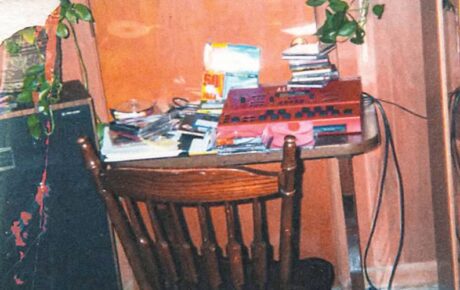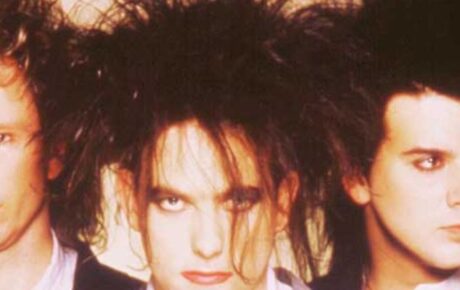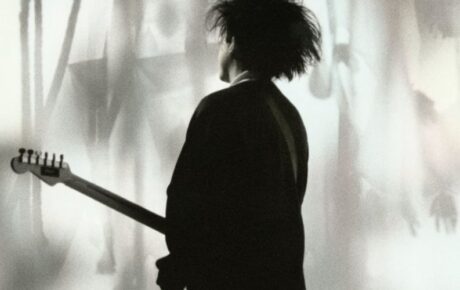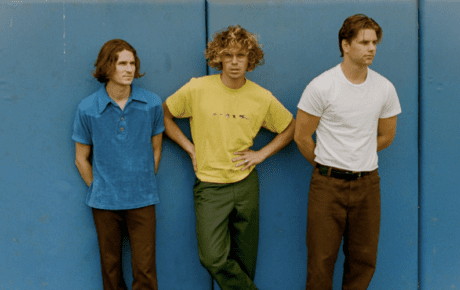Zoink Gang founder, Spillage Village member, Dreamville signee, Georgia-born Destin Choice Route—also known as JID—broke through in 2017 with his debut The Never Story. His knack for
storytelling, clever lyricism, and thinner voice immediately drew comparisons to Kendrick Lamar, especially with the track “NEVER.” As time went on, JID proved he was no Kendrick clone and
carved out a lane for himself as a legitimate presence in the lyric heavy areas of hip-hop.
He brought bangers like “151 Rum” and the J. Cole assisted “Off Deez” on his 2018 follow-up DiCaprio 2, while proving his calmer songs like “Workin Out” are just as engaging when performed
live with a performance on the COLOURS YouTube channel. He circled back to his Spillage Village collective to release a group album in 2020, Spilligion, before 2022’s The Forever Story brought
his name into the mainstream rap conversation permanently, with many rap outlets praising the release as one of the year’s best. A relentless run of quality tracks from the opener “Galaxy” to the
TikTok-fuelled hit “Surround Sound” culminates in the album’s centrepiece “Kody Blu 31.” Sure, JID has collaborated with names like Ravyn Lenae, Yasiin Bey, and Lil Wayne and you would
expect those songs to be the ones generating hype or leaving a lasting memory, but what lasts in my mind is the unexpected spiritual journey on “Kody Blu 31.” For JID, the song is a dedication to
his friend’s late son. For the rest of us, it is both a goodbye and an empowering wish for a better future. JID opens with a verse full of singing—good singing—before passing the hook onto
another vocalist and returning for a small rap verse. There is a tenderness that cuts through the bravado and braggadocio he puts on for the rest of the album and sticks in the mind for years
afterward.
2025’s God Does Like Ugly starts off with Griselda Records founder Westside Gunn setting the scene. On “YouUgly,” he calls his woman ugly and then flexes his sneakers saying they’re both
$8000 and ugly, later questioning if we even understand. Underlying is the sampled production we have come to expect from Griselda artists until now. However, this opener has more to it than just that as when JID finally starts his first verse, he shines a light and closely inspects his fans and what success looks like, over the top of booming drums and a looping, screamish sample—the
first beat change. JID raps and raps before taking a break to pass the song over to a chorus of singers reassuring us that while “there may be tears in their eyes, and trouble may stay for a while,
it’s just a moment in time” that will pass. This peaceful, percussionless moment ends abruptly with Westside Gunn ushering us into the second half of the song and the third beat switch two
and a half minutes into the song. JID continues over a grating synth telling us about how his story goes from the ugly side, having to back himself and his raps to make it to somewhere “better.” In
this song, “ugliness” is framed as something not negative and rather something imperfect and authentic.
The second song, “Glory,” continues with this but trades grating synths and Westside Gunn for gospel samples. Lines from a pastor come in the first half and return in the outro,
offering tidbits and questions to further JID’s philosophy on this album: “He’s decked us out,” “hasn’t He made you brand new?” “Nothing in my wardrobe compares to what he’s outfitted me
with,” and “when he sees me, I look like a million bucks.” When followed by the lead single “WRK,” it is clear where JID is going with the album. He is spreading the message that God loves
and accepts you as you are and, while you may want to build yourself up to be something more, for yourself or for Him remember He loved you when you were ugly.
JID weaves this sentiment throughout the rest of his songs, choosing to bring it out more when the features and lyrical topics deem it necessary. Track four, “Community,” features the recently
out-of-retirement duo Clipse rapping about close to home topics. The song features soulsampling production from Frankie P and Grammy-nominated producer Mario Luciano, the latter’s
work includes Kendrick Lamar’s “Savior” and Drake’s “8am in Charlotte.” Perhaps addressing that topic, JID’s first rap line is plain and simple, “I don’t give a f*ck about no industry beef,” because
of the lack of concern given to community issues that are closer to the lives of real people. I said his first rap line because the song starts with a voice-deepened JID mentioning the poor living
standards he grew up around and how his mother always told him to stay away from certain apartments. Continuing his rap verse, we see JID take on the role of an adult living in the apartments and tries to reassure those around him that he sees a way out of the buildings akin to Paul Atreides, warning that he will have to het his hands dirty. It must be said that the family duo
Clipse hail from the late 90s to mid 2000s era of rap and have a certain affinity for sharing drug stories, so when Pusha T continues from JID’s verse talking about gentrifying the community, he
is talking about selling cocaine and keeping his community down. He takes on the role of the drug dealer and the Devil at large where his brother, No Malice, finishes off the song with verifying
intensity.
The next track, “Gz” takes a step back from the heavy social commentary and opts for a first-person perspective when committing felonies and hard-hitting production. After that, the
Vince Staples-featuring “VCRs” is relaxed with nice little guitars over some dialled back drums while the two still rap about how seeing “evil sh*t was regular.” Together, the three songs paint
pictures of an ugly place for children to grow up in and, with lines like “So Hard to Say Goodbye is the only lullaby here,” and “apartments, the projects, the ghettos, all the same sh*t,” showing their shared experiences from completely different areas of the United States, where the issue lies within the broken communities set up for the Black American diaspora.
Committing to a flip-flopping album tracklist, the next stretch of songs take on more commercially viable tones with digestible production and high profile names like Don Toliver, Ty Dolla $ign,
6LACK, Ciara, and Jessie Reyez. The 6LACK and Ty Dolla $ign track, “Wholeheartedly,” is probably the best of this portion as it feels most sonically coherent with the rest of the album,
opting for a sound closer to the previous “VCRs,” instead of a danceable sound on the Ciara track. At this point on The Forever Story, we would have hit our peak as the pacing of the tracklist
owed itself towards the first half and its inclusion of “Surround Sound” and “Kody Blu 31.” On God Does Like Ugly, the last twenty minutes is as engaging as the first run of tracks and brings
the album to a satisfying close.
“On McAfee” is maybe JID at his most traditionally hip-hop angry on the album so far, but then he outdoes himself on the six-and-a-half-minute long “Of Blue.” He weaves in the hopes of a better safer place throughout tales of false idols and misguided pastors. JID raps over two beats, two halves effortlessly and gives you something to put your focus on: his performance. Furthering the intellectual food for thought, GDLU’s penultimate track, “K-Word,” is about JID’s karma. He feels trapped waiting for his good deeds to catch up to him and pay him dividend. Tempted to do the wrong thing, he perseveres. Here is where the title of the album becomes more of a question JID is asking himself: God must like ugliness if he isn’t rewarding those doing the “right” thing. This battle he finds himself in leads JID to almost take on a saviour role towards the end of the song with Pastor Troy’s chorus starting with “who can I call when it’s just me?” And no, he is not a real pastor.
God Does Like Ugly ends with “For Keeps,” an epilogue to the album’s most dramatic moment just a few moments before. JID looks back at his life and his come up in the rap game. He used to
be happy with just ten plays on SoundCloud. Now, JID gets millions of streams daily. He has come a long way from where he started and he has everyone in his life to thank for that, but not
least of all himself. He backed himself to get out of the apartments and bring his music to many more ears around the world and sure, he gets to reap the superficial rewards of his labour.
Ultimately, JID is most concerned with keeping his soul on track while knowing how easy it would be to destroy the lives of those in what he chooses to call his community. He is a father now so
everything he chooses to do from the moment he chose that life path has to be in service of his children, and if creating an album of music where he shows what his life looked like once upon a
time serves them, then I’m glad. His listeners get an album that is paced better than the last, will likely not age quickly due to crisp production and evergreen morals, and a set of songs whose
lyrics get better with every listen.












